- Size
- Smallest
- Small
- Small to Medium
- Medium
- Large
- Giant
- Characteristics
- Smartest
- Hypoallergenic
- Fluffy
- Best Guard
- Best Family
- Best for Kids
- Low Shedding
- Healthiest
- Police Dogs
- Most Calm
- Quietest
- Color
- White
- Black
- Grey
- Brown
- Blue
- Red
- Coat
- Hairless
- Short
- Long
- Origin
- Japan
- China
- Australia
- Germany
- Italy
- United States
- France
- Group
- Hound
- Terrier
- Herding
- Toy
- Working
- Sporting
6 Tips to Prevent Your Dog's Excessively Paw Licking
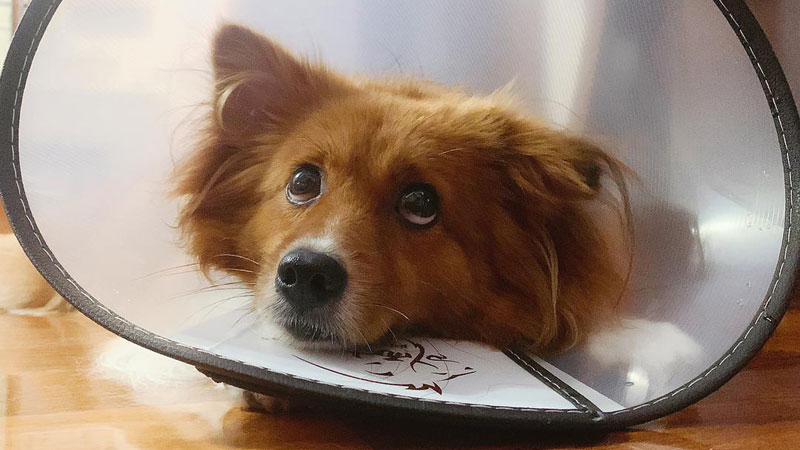
Dogs are known for their occasional paw licking, a seemingly harmless behavior that is a part of their natural grooming instinct. However, when this behavior becomes excessive, it may signal an underlying issue that requires attention.
In this comprehensive guide, we will explore the reasons why dogs excessively lick their paws and provide practical strategies to curb this behavior. While these suggestions can be implemented at home, consulting with a veterinarian is always recommended for a thorough examination and professional advice.
Why Does My Dog Lick Their Paws?
Various factors can contribute to a dog's excessive paw licking, and understanding the root causes is crucial for effective intervention. Some common reasons include:
Injury:
If your dog focuses on licking a single paw, it may indicate an injury. Dogs instinctively lick painful areas as their saliva has healing properties. Conduct a physical examination to check for thorns, burrs, cuts, bee stings, or other injuries.
Paw licking might also indicate pain or injury in other body parts, such as the legs or shoulders, especially in cases of arthritis.
Allergies:
Environmental or food allergies can lead to paw licking. Itchy paws may result from allergens in the dog's environment, such as grass, chemicals, or deicing products.
Food allergies can also cause itching, prompting the dog to lick the affected area.
Stress and Anxiety:
Excessive paw licking can be a stress signal. Changes in routine, loud noises, separation anxiety, or boredom may contribute to compulsive licking.
Mental and physical stimulation are essential for a dog's well-being, and insufficient engagement may lead to compulsive behaviors.
Dry Skin:
Dry or irritated paw pads, often caused by environmental factors or excessive bathing, can lead to discomfort and paw licking.
Moisturizing with dog-safe products, like balms or moisturizers, can help soothe dry skin.
Parasites:
Fleas, ticks, or mange can cause itching, prompting dogs to lick their paws. Regular preventative measures, such as flea and tick medication, can address this issue.
Prevention and Treatment for Excessive Paw Licking
Here are practical tips to prevent and manage excessive paw licking:
1. Consider Dog Booties
Covering your dog's paws with booties or socks can prevent compulsive licking and protect them from environmental irritants.
2. Clean and Dry Paws
After walks, wash and dry your dog's paws to remove potential allergens and irritants. This is especially important if you opt not to use booties.
3. Moisturize or Use Balms
Apply dog-friendly moisturizers or balms to keep paw pads supple and prevent dryness. Ensure paws are clean and dry before application.
4. Maintain a Well-Rounded Routine
Address potential causes like boredom, stress, or food allergies by maintaining a balanced daily routine for your dog. Regular exercise and mental stimulation are crucial.
5. Use Citrus or Bitter Apple Sprays
If licking persists, consider applying bitter-tasting substances, such as citrus juices or bitter apple spray, to discourage licking. Ensure there are no open wounds before using these deterrents.
6. Elizabethan Collar as a Last Resort
In urgent cases, an Elizabethan collar can prevent immediate licking, providing time for the underlying issue to be addressed.
The Risk of Secondary Infection
Excessive paw licking poses a risk of secondary infections, such as yeast or bacteria growth. The constant moisture can lead to redness, swelling, itching, and discomfort, creating a cycle of increased licking. Prompt intervention is crucial to prevent these complications and ensure your pet's comfort and well-being.
In conclusion, while occasional paw licking is normal, persistent and excessive licking requires attention. By identifying the underlying causes and implementing preventive measures and treatments, dog owners can help their furry companions lead healthier, more comfortable lives. If in doubt, consulting with a veterinarian is the best approach to ensure a thorough assessment and tailored guidance for your dog's specific needs. Don't wait—addressing excessive paw licking promptly is key to a happy and healthy pet.
You May Also Like
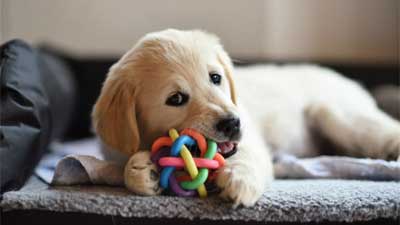 Help & AdviceThe 6 Benefits of Chew Toys for Dogs
Help & AdviceThe 6 Benefits of Chew Toys for Dogs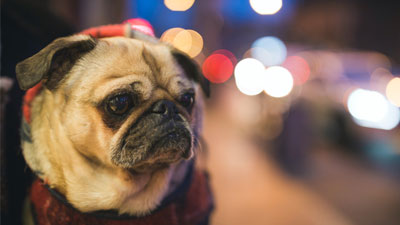 Help & Advice7 Reasons Why Dogs Always Keep Their Mouths Closed
Help & Advice7 Reasons Why Dogs Always Keep Their Mouths Closed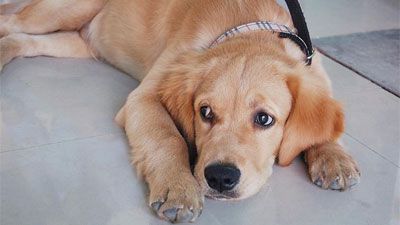 Help & AdviceThe 4 Reasons Behind Dogs Avoiding Eye Contact
Help & AdviceThe 4 Reasons Behind Dogs Avoiding Eye Contact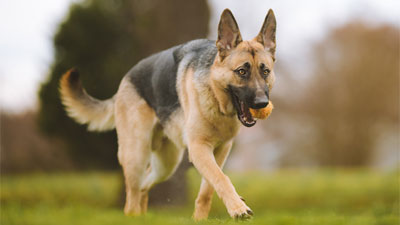 Dog BehaviorDo Dogs Learn Fetch Naturally?
Dog BehaviorDo Dogs Learn Fetch Naturally?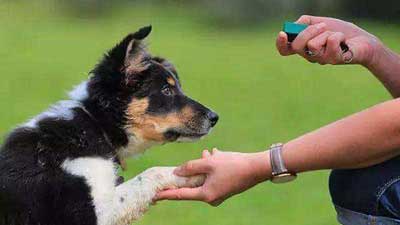 Dog Training Tips5 Things to Know About Puppy Behavior Training Mistakes
Dog Training Tips5 Things to Know About Puppy Behavior Training Mistakes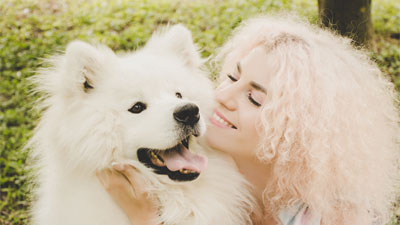 Dog Training Tips5 Easy Steps: How to Teach a Dog to Smile
Dog Training Tips5 Easy Steps: How to Teach a Dog to Smile